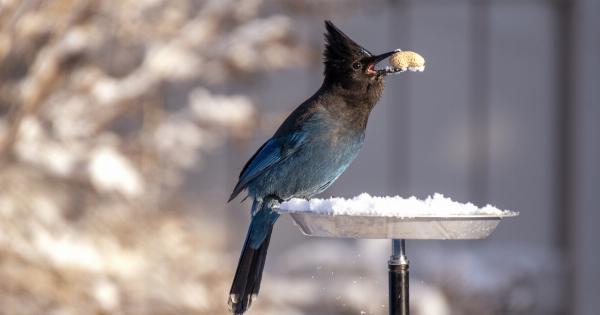Peanut allergy is a growing concern for parents, caregivers, and healthcare providers. It affects about 1-2% of children worldwide and can cause severe reactions, including anaphylaxis, which can be life-threatening.
Doctors frequently advise parents to avoid feeding peanuts to their children until a later age to prevent peanut allergies. However, recent research suggests that early consumption of dried fruit can help prevent peanut allergies.
What is peanut allergy, and why is it a concern?
A peanut allergy is a reaction to proteins found in peanuts. When the immune system mistakenly identifies peanut protein as harmful, it produces an allergic reaction.
The symptoms of peanut allergy can range from mild to severe, including hives, itching, sneezing, swelling, stomach upset, and anaphylaxis. In severe cases, peanut allergy can cause difficulty breathing, a rapid drop in blood pressure, loss of consciousness, and death.
Due to the potential severity of peanut allergy symptoms, parents are often advised to avoid exposing their children to peanuts until a later age.
However, this approach may be counterproductive, as recent research suggests that early peanut exposure can help prevent peanut allergies.
What is early peanut exposure, and why is it beneficial?
In the past, it was believed that early exposure to peanuts increased the risk of peanut allergy. However, recent studies have shown that early peanut exposure can help prevent peanut allergies.
Early peanut exposure is the introduction of peanuts into an infant’s diet before they reach 12 months of age. By introducing peanuts early, the immune system becomes more tolerant to peanut proteins, reducing the risk of an allergic reaction.
Researchers have found that infants who consume peanuts regularly from a young age have a lower risk of developing peanut allergies.
In a study of over 600 infants, those who consumed peanuts regularly had a 70% reduction in peanut allergy risk compared to those who avoided peanuts. Early peanut exposure has also been shown to have long-lasting effects, with a lower risk of peanut allergy continuing into adolescence.
Why dried fruit can help prevent peanut allergies
A recent study published in the Journal of Allergy and Clinical Immunology found that early consumption of dried fruit can help prevent peanut allergies.
The study involved over 8,000 children and found that those who regularly consumed dried fruit had a lower risk of developing peanut allergies.
The researchers believe that the high levels of polyphenols found in dried fruit are responsible for the protective effect. Polyphenols are antioxidants with anti-inflammatory properties that protect against oxidative stress.
These compounds have been shown to reduce inflammation and allergies in other studies and may help prevent peanut allergies by reducing the immune response to peanut proteins.
The study also found that early consumption of fresh fruit did not have the same protective effect, suggesting that the processing of dried fruit may enhance its anti-inflammatory properties.
Further research is needed to confirm these findings and determine the optimal dosage and type of dried fruit to prevent peanut allergies.
How to introduce peanuts to infants
If you are considering introducing peanuts to your infant, it is essential to do so safely. The American Academy of Pediatrics recommends that infants who are at high risk of peanut allergy be evaluated by an allergist before consuming peanuts.
Infants who have severe eczema or egg allergy should be evaluated before consuming peanuts.
If your infant is not at high risk of peanut allergy, you can introduce them to peanuts in a safe and controlled way.
The National Institute of Allergy and Infectious Diseases recommends introducing peanuts around six months of age, but you should consult with your pediatrician to determine the best timing based on your infant’s needs.
You can introduce peanuts to infants in the form of peanut butter by spreading a thin layer on toast or crackers. You can also mix smooth peanut butter into pureed fruit or vegetables.
Whole peanuts or chunky peanut butter should be avoided, as these pose a choking hazard to infants. You should monitor your infant for signs of an allergic reaction and seek medical attention immediately if they experience any symptoms.
Conclusion
Peanut allergies are a growing concern, but recent research suggests that early consumption of dried fruit may help prevent peanut allergies.
Early peanut exposure can help the immune system become more tolerant of peanut proteins, reducing the risk of an allergic reaction. Dried fruit contains high levels of polyphenols, which may further reduce the risk of peanut allergy by reducing inflammation and oxidative stress.
If you are considering introducing peanuts to your infant, it is essential to do so safely and consult with a pediatrician.






























